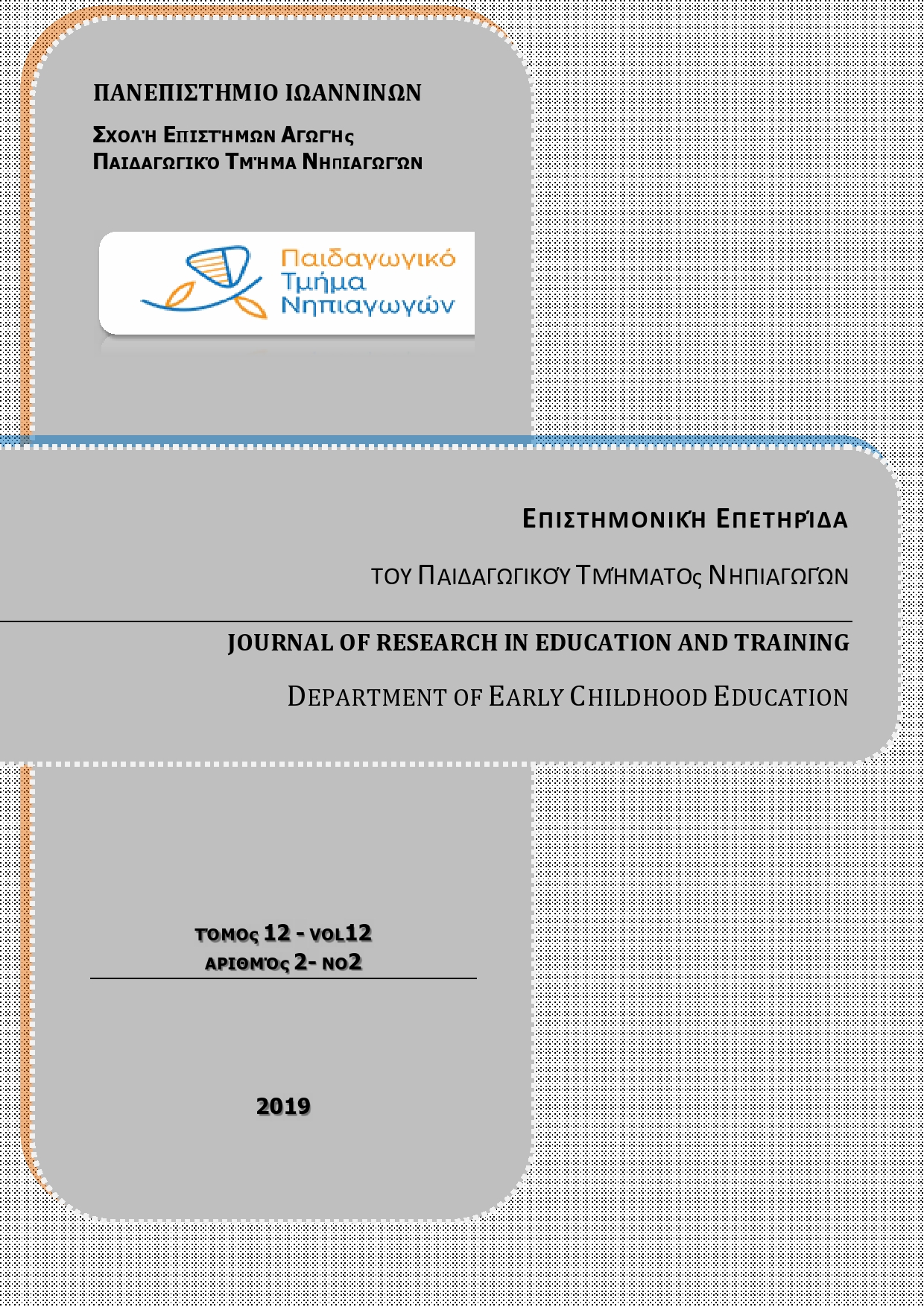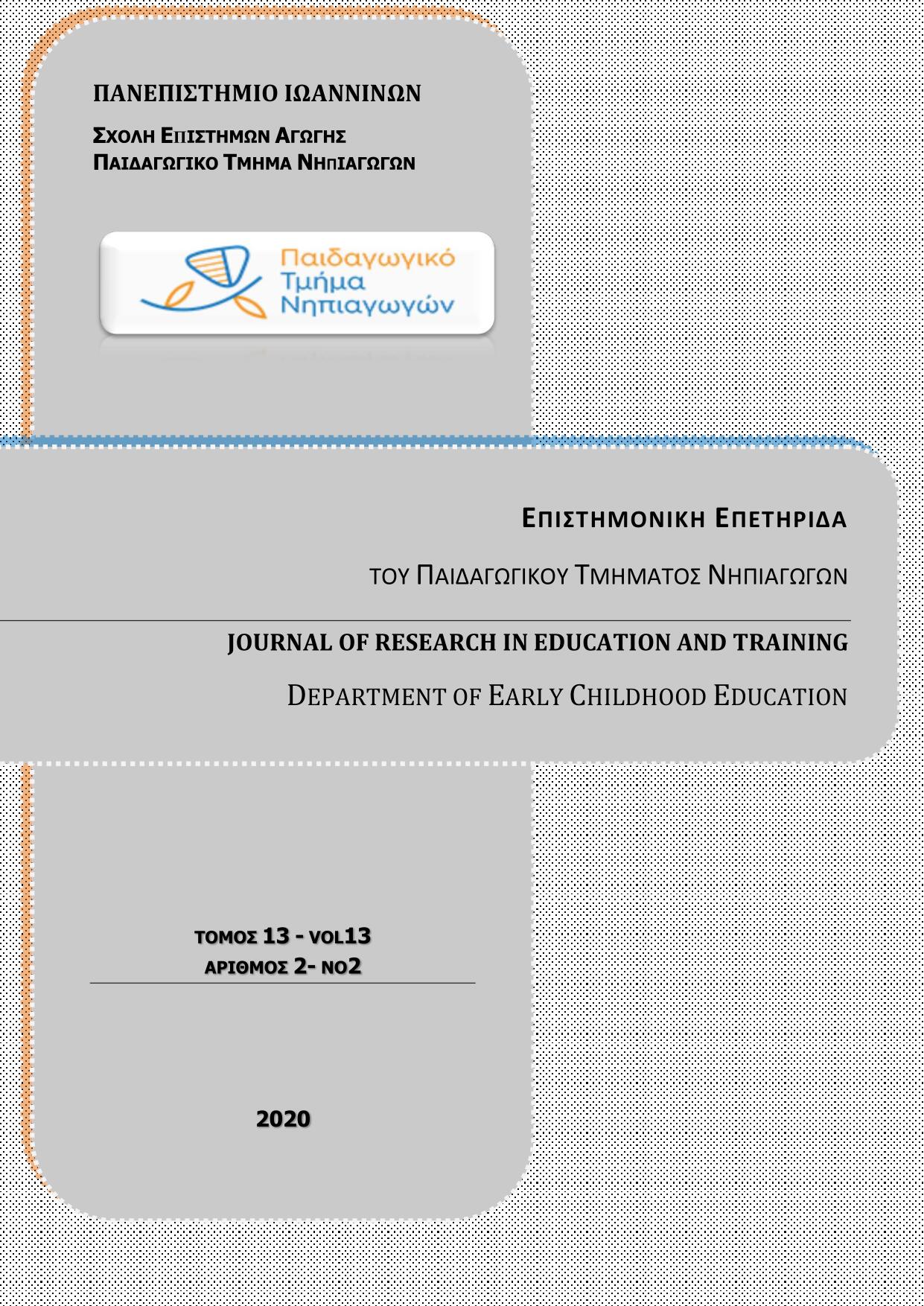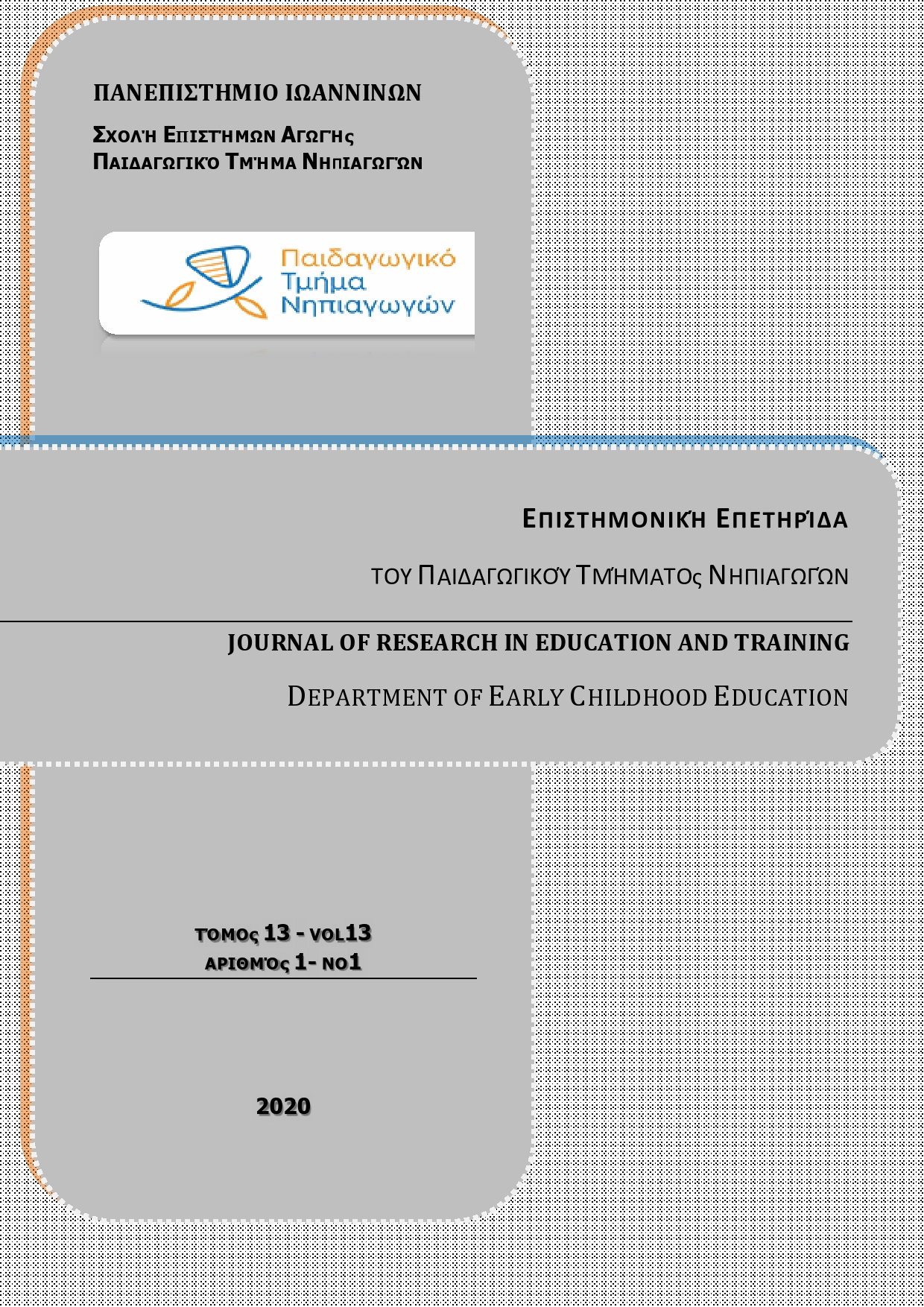Pairs of synonymous words in Modern Greek and their systematic use to enrich the vocabulary of the students

Abstract
The modern Greek language displays a number of special characteristics due both to its long history and to a series of social developments and special circumstances that have contributed to its conservative nature, which is particularly evident in the vocabulary where synchrony is intertwined organically with a series of elements of diachrony that are to a great extent functional and productive. These findings impose for the elementary school pupils to get in touch with the diachronic side of the language as far as the vocabulary is concerned, while studying the synchronic function of the language. In the present study we present the results of an experimental teaching done to pupils of the 3rd Grade which aimed at the creative exploitation of the synonymous pairs.
Article Details
- How to Cite
-
Tsitsanoudi-Mallidi, N., & Mitsi, A. (2019). Pairs of synonymous words in Modern Greek and their systematic use to enrich the vocabulary of the students. Journal of Research in Education and Training, 12(2), 117–134. https://doi.org/10.12681/jret.19886
- Issue
- Vol. 12 No. 2 (2019)
- Section
- Articles

This work is licensed under a Creative Commons Attribution-NonCommercial-ShareAlike 4.0 International License.
Authors who publish with this journal agree to the following terms:
- Authors retain copyright and grant the journal right of first publication with the work simultaneously licensed under a Creative Commons Attribution Non-Commercial License that allows others to share the work with an acknowledgement of the work's authorship and initial publication in this journal.
- Authors are able to enter into separate, additional contractual arrangements for the non-exclusive distribution of the journal's published version of the work (e.g. post it to an institutional repository or publish it in a book), with an acknowledgement of its initial publication in this journal.
- Authors are permitted and encouraged to post their work online (preferably in institutional repositories or on their website) prior to and during the submission process, as it can lead to productive exchanges, as well as earlier and greater citation of published work (See The Effect of Open Access).




